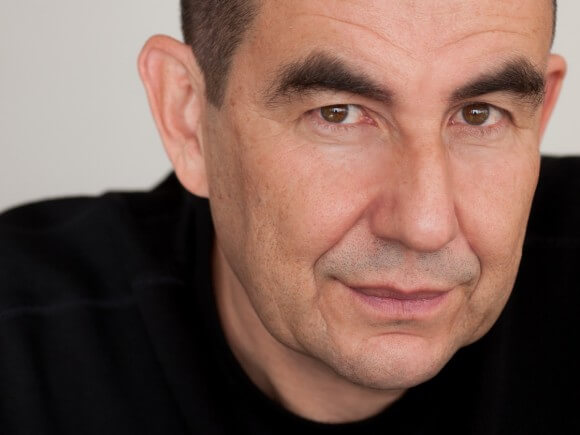Ari Shavit’s mea culpa for sexual assault sounds uncannily like the argument of his book, My Promised Land: The Triumph and Tragedy of Israel. At least that’s the way the New York Times frames it. In “Israeli Columnist Resigns after Harassment Claims,” Peter Baker protects Shavit’s Liberal Zionism from the taint of his current moral lapse, just as his Promised Land redeemed the miraculous narrative of Israel’s founding from its origins in the Nakba. In both cases, heartfelt acknowledgment of wrongdoing redirects attention away from both the victim of violence and the culpability of the perpetrator to highlight his admirably ethical qualities as confessor.
Caveat—I am not positing an equivalence or even an analogy between sexual assault and ethnic cleansing. But Shavit, a master of rhetoric, does employ a parallel logic in response to both: the rhetorical strategy of “shooting and crying.” This Israeli phrase refers to the phenomenon of soldiers beating their breasts about the violence they’ve committed in order to relieve their sense of guilt and demonstrate their moral depth. Crying bathes the shooter in renewed innocence.
Shavit’s famous chapter on the ethnic cleansing of Lydda, originally published in the New Yorker, tells a shoot and cry story of the Nakba on a national scale. Some American readers may have been shocked by the revelation of how Israelis massacred Palestinian inhabitants of the town and expelled the survivors, a history well known to Palestinian and Israeli historians and to the people, of course, who lived through it. Most American reviewers, however, singled out this chapter, not for its record of brutality, but for Shavit’s honesty and courage in exposing Israel’s original sin and in welcoming its tragic necessity for Israel’s founding. Mea Culpa.
As Shavit’s confession of national guilt enhanced Israel’s image in My Promised Land, so does Shavit’s personal apology enhance his own image today. He has discovered male privilege(!) just as he discovered Israel’s privilege to whitewash the narrative of its own founding. Even his accuser praises his moral gumption in examining his own soul–just as his book bravely examined the soul of his nation. Shavit’s moral fortitude shines out against the dark shadow of Donald Trump, from whom he is keen to separate himself—though one might assume that sets a very low bar. But that kind of moral contrast underlies the shooting and crying story as well: WE cry because we respect the value of life in contrast to THEM—they worship the culture of death. It’s not surprising to read that Shavit is genuinely remorseful and would never challenge the truth of his female accusers, unlike the incorrigible misogynist, Mr. Trump.
The Times article ends oddly with a two-paragraph non-sequitur about Shavit’s importance as a spokesman for a “sort of liberal Zionism that has fallen out of fashion.” Shavit may have learned something about male privilege, as he claims, but neither he nor the New York Times has learned much about the privilege of white Israelis of European background, the privilege to narrate a history of violence that bespeaks your own moral superiority. What better proof of this privilege than the article’s last words. Rather than the voice of the women assaulted by Shavit, the final paragraph quotes Leon Wieseltier’s endorsement of My Promised Land.



Wandering through Oz this week (Jerusalem Post) I read an article pertaining to Shavit and was astonished at the vitriol in the comments section – not against Shavit’s sexual predations, no. The comments were angry bytes wrt his ‘lies’ about the state of israel vis a vis My Promised Land, his being a ‘leftist’, etc.
The right is vewy, vewy angwy.
Good article!
Shoot and cry.
The whole time I read this I was thinking of cops who shoot and then are said to suffer greatly. Their defenders like to use the phrase: No cop wants to shoot.
However, we have multiple videos of hi-5ing and other celebrations after shootings.
Sorry for veering off, but seems like a tool that might have multiple uses.
.
more often than not the people who are caught
or feel caught aren’t crying for any but themselves
.
many have yet to learn that
just as each good act blesses every & all
each wrong act wrongs every & all
.
by His measure we all fall short
By His Will
may none of us get what we truely deserve
.
G-d Bless
.
I had the exact same thought about the similarities in his logic. You’ve expressed it so well.